If you ever feel like you’re not spending enough time in the law school between your classes and studying, getting involved in extracurricular activities can help fill that gap! Both the law school and the university at large have a wide variety of student organizations that cater to almost every interest imaginable. Beyond simply looking good on a resume, joining these organizations gives you an opportunity to hone your legal skills, meet people who share a common interest, and form bonds with your classmates that will last long after classes end.
Duke Law Organizations
Pro Bono Work & the Public Interest Law Foundation
Doing pro bono work allows you to put your newfound legal knowledge to the test in ways that help real people in the community with real-world problems. Practical experience helping those who cannot access traditional legal services will be valuable regardless of whether you wind up working for a nonprofit, the government, or a private firm. Student groups coordinate pro bono work in many different fields, including immigration services, expungement petitions, reproductive justice, and more. For more information, visit the pro bono program and public interest websites.
Students are encouraged to take the Pro Bono Pledge and complete fifty hours of pro bono work over their three years in law school. Fifty hours of pro bono work are also necessary for admission to the New York Bar, and you must complete fifteen hours of pro bono work per year to be eligible for public interest summer funding.
Duke Bar Association
The Duke Bar Association is essentially the student government of the law school, responsible for planning professional, social, and other extracurricular activities. It serves as a liaison between the student body and the law school administration, and helps to coordinate shared resources between student organizations.
The largest social events of the year are spearheaded by DBA, including the Fall Cocktail, Barrister’s Ball, and Parent’s Weekend. Additionally, DBA runs the Duke Law Softball League—each 1L small section will field a team, which will then compete against other teams of 1Ls, 2Ls, and 3Ls en route to the championship!
DBA consists of a President, Vice President of Administration, Vice President of Events, Treasurer, Secretary, Academics Chair, Athletics Chair, Social Chair, Social Media Chair, and Wellness Chair, as well as representatives from the LLM class and all three years of students. Elections are typically held in early February.
Journals and Law Review
 The journals are student-run publications that publish academic articles written by law professors and legal scholars from around the world, as well as original student work from right here at Duke. Journal membership is often sought by employers because it hones your writing, editing, and citation skills, and indicates your dedication to quality work.
The journals are student-run publications that publish academic articles written by law professors and legal scholars from around the world, as well as original student work from right here at Duke. Journal membership is often sought by employers because it hones your writing, editing, and citation skills, and indicates your dedication to quality work.
Duke Law hosts seven different publications: the Duke Law Journal, the Duke Journal of Constitutional Law & Public Policy, Law & Contemporary Problems, the Duke Journal of Comparative & International Law, the Duke Law & Technology Review, the Duke Environmental Law & Policy Forum, and the Alaska Law Review.
Membership on a journal can be determined by grades, personal statements, and performance during the casenote competition, in which each student seeking journal membership will write a brief paper about a recently decided case after spring exams. Information sessions are hosted each spring for first-year students to learn about the application process and the specialty of each journal. All of the journals except the Duke Law Journal are now located in newly-constructed offices on first floor of the Goodson Law Library.
Moot Court
As part of your Legal Analysis, Research, and Writing class, every 1L student must argue the topic of their spring appellate brief in the first round of the Hardt Cup Moot Court Competition. This can be intimidating because older students will play the role of judges and pepper the 1Ls with questions—however, this is the only time you’re required to do an oral argument in your law school career, and the only way to fail is by not showing up prepared.
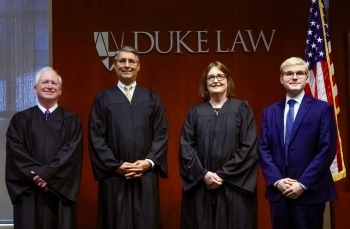
If you choose to continue in the Hardt Cup, you are given a new topic and paired off in brackets to compete over the next weeks for the championship. The final round is often overseen by judges from federal district and appellate courts. The top performers will be invited to join the Moot Court board, another superlative that is often desired by litigation firms.
All 2Ls and 3Ls are eligible to participate in the Jessup Cup and Dean’s Cup, which focus on international law and appellate practice, respectively. Judges of the final round of the Dean’s Cup have, in past years, included Supreme Court Justices Scalia and Alito.
Mock Trial
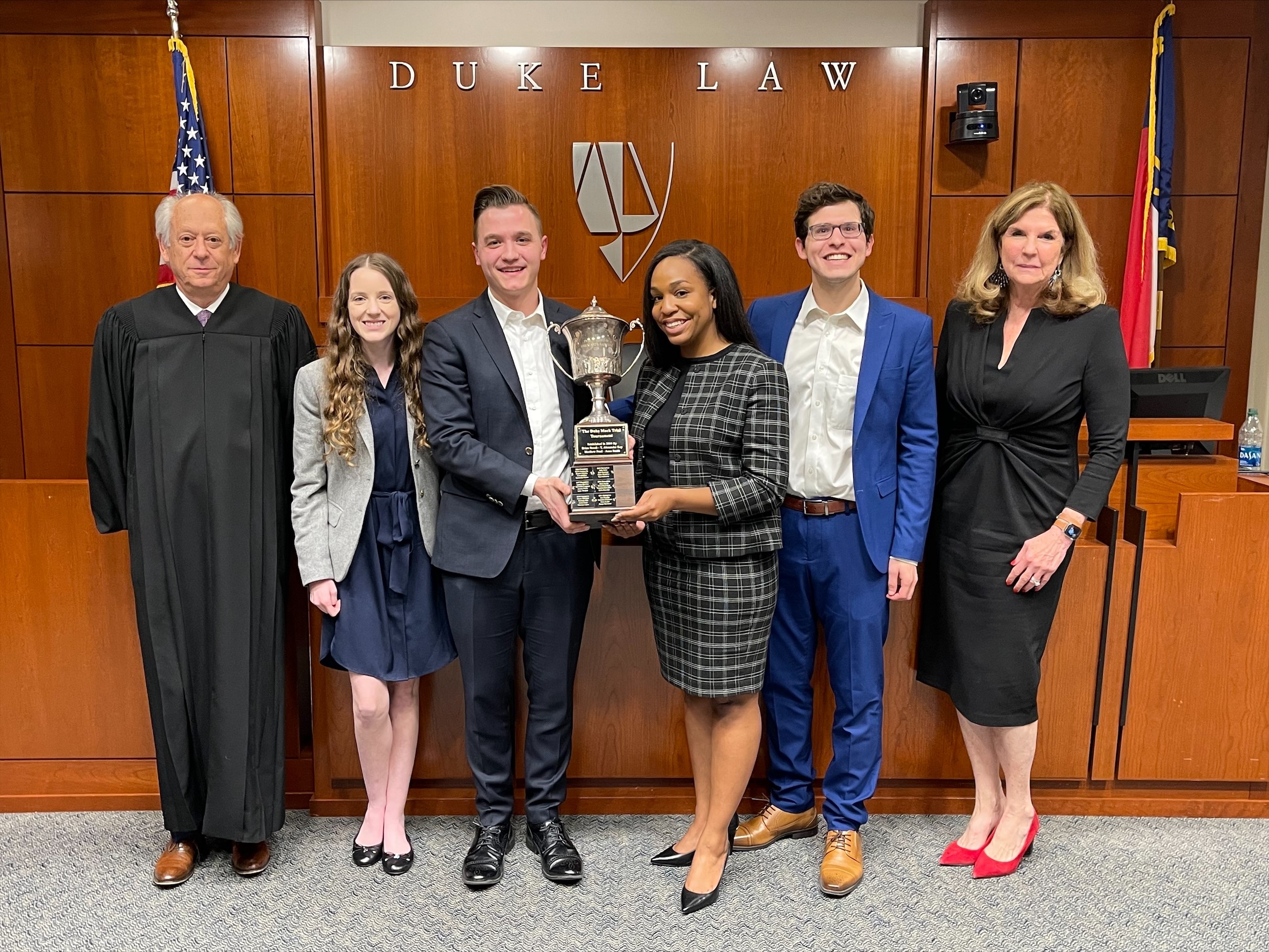
While Moot Court offers students the chance to test out their skills at appellate advocacy, Mock Trial allows students to gain trial experience by examining witnesses, making objections, and delivering opening and closing arguments. Teams comprised of four 1L students can compete in a tournament for the Twiggs-Beskind Cup, which takes place in the spring over a weekend in the Durham County Courhouse. Top competitors are offered spots on the Mock Trial Board, and are eligible to compete in further tournaments all over the country.
Other Student Organizations
Listed below are the names of Duke Law’s student organizations. You’ll have the chance to meet many of them at the beginning of the year during tabling and other introductory events, though don’t be afraid to ask older students about which groups they are members of! Additionally, if you don’t see your interests represented, you can easily organize your own student group and petition for event funding.
- American Civil Liberties Union
- American Constitution Society
- Student Animal Legal Defense Fund
- Asian Pacific American Law Students Association (APALSA)
- Black Graduate and Professional Student Association
- Black Law Students Association (BLSA)
- Business Law Society
- Christian Legal Society
- Coalition Against Gendered Violence
- Competition Law Society
- Duke Bar Association
- Duke Criminal Law Society
- Duke Environmental Law Society
- Duke European Law Society
- Duke Food Law Society
- Duke Law Florida Club
- Duke Immigrant and Refugee Project
- Duke Law Basketball
- Duke Law California Club
- Duke Law Climbing Club
- Duke Law Democrats
- Duke Law Energy Society
- Duke Law Israel Experience
- Duke Law Music Association
- Duke Law Run Club
- Duke Law & Technology Society
- Duke Law Texas Club
- Duke Law Veterans
- Duke Law Womxn of Color Collective
- Federalist Society
- First Generation Professionals
- The Global Law Student Association
- Government and Public Service Society
- Graduate and Professional Student Council
- Health Law Society
- Human Rights Law Society
- If/When/How: Lawyering for Reproductive Justice
- Innocence Project
- International Law Society
- Intellectual Property Law Society
- Interactive Entertainment Law Society
- International Law Society
- J. Reuben Clark Society
- Japanese Law Society
- Jewish Law Students Association (JLSA)
- Latin American Law Students Association (LALSA)
- Law & Economics Society
- Law & Entrepreneurship Society
- Law Students for Accessibility
- Middle East and North African Law Students Association (MENALSA)
- Mock Trial Board
- Moot Court Board
- Muslim Law Students Association
- National Lawyers Guild
- National Security Law Society
- Native American Law Students Association (NALSA)
- North Carolina Club
- OutLaw
- Pirate Law Society
- South Asian Law Students Association (SALSA)
- Space Law Society
- Semester Break Legal Service Trips
- Sports and Entertainment Law Society
- Street Law
- Transactional Law Competition Board
- Tricky Dick
- Veterans Assistance Project
- Volunteer Income Tax Assistance
- Women Law Students Association (WLSA)
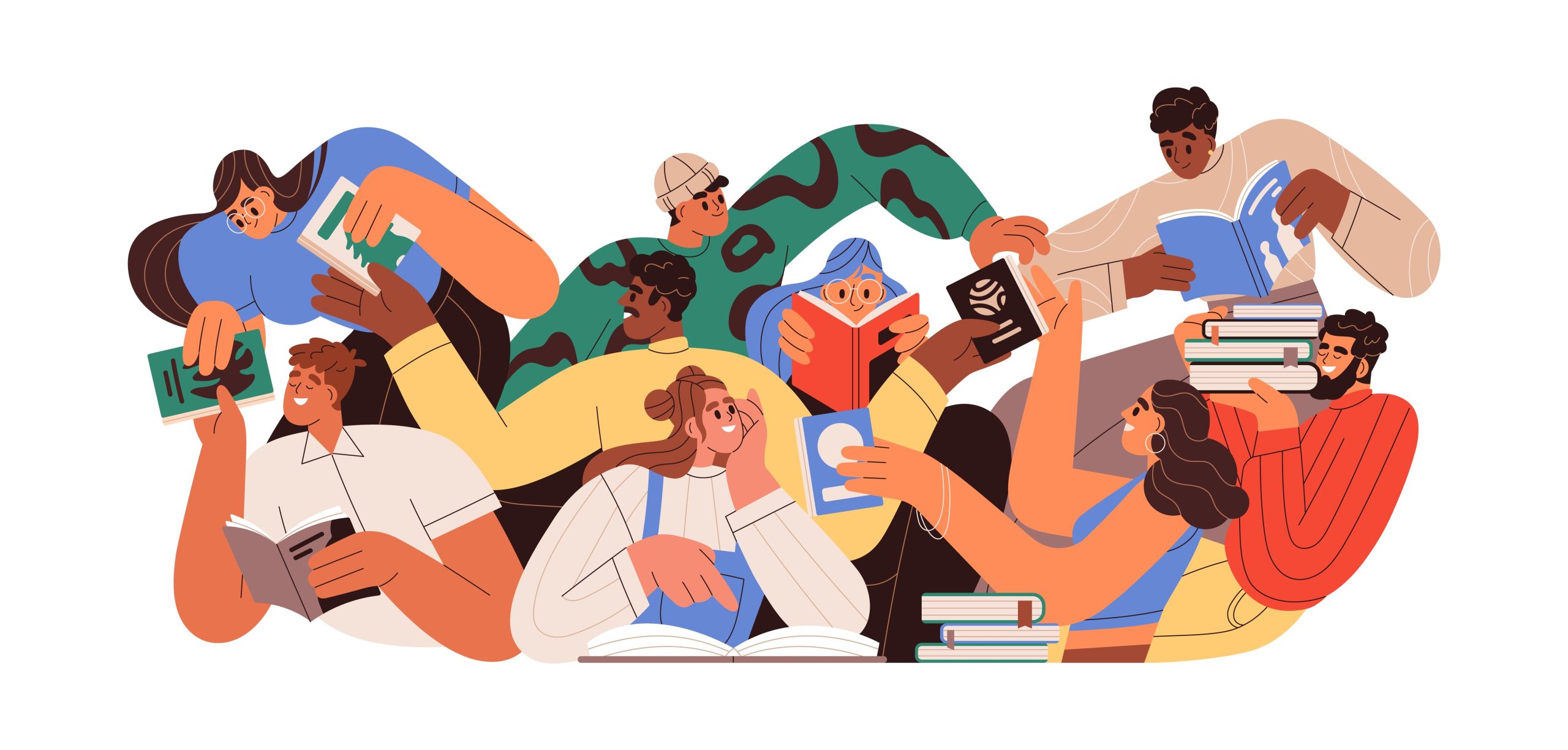
Duke University Organizations
Graduate and Professional Student Government
 The Graduate and Professional Student Government (GPSG) is the overarching student council for Duke’s nine graduate and professional schools, including elected representatives from the business, divinity, environment, graduate, law, medical, and nursing schools. GPSG members act as a liaison between students and the university administration, serve on many seperate committees, and help to coordinate social events between the schools.
The Graduate and Professional Student Government (GPSG) is the overarching student council for Duke’s nine graduate and professional schools, including elected representatives from the business, divinity, environment, graduate, law, medical, and nursing schools. GPSG members act as a liaison between students and the university administration, serve on many seperate committees, and help to coordinate social events between the schools.
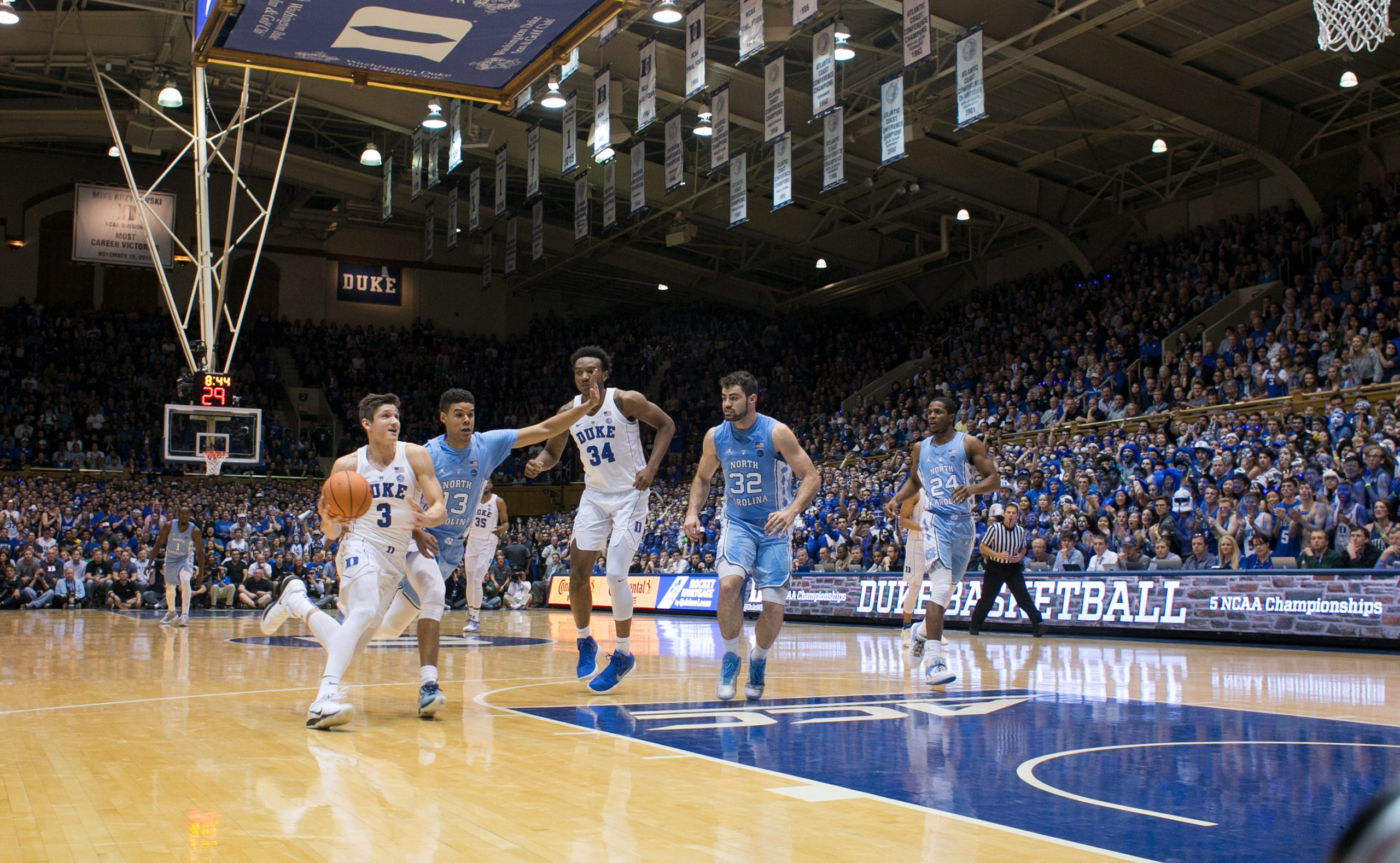
For many, GPSG’s most important role is distributing tickets for the men’s basketball games. While undergrads can get in for free, graduate students have to participate in the vital Duke tradition known as Campout—students convene for forty-eight straight hours to show their devotion to Duke Basketball, at which point they are entered into a lottery. If you win, you have the opportunity to purchase a season pass for $300. If you are unable to attend a certain game, you can temporarily transfer your ticket to another student.
Mary Lou Williams Center for Black Culture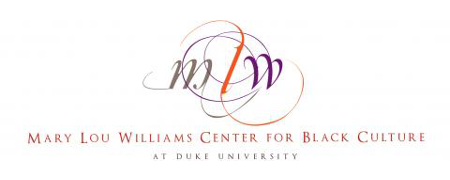
Opening in 1983, the Mary Lou Williams Center for Black Culture has been a steadfast campus presence, dedicated to honoring and celebrating the many contributions of Black students, faculty, and staff to Duke University. It hosts many speakers, presentations, and musical events throughout the year.
Center for Sexual and Gender Diversity
 The mission of the Center for Sexual and Gender Diversity is to provide education, advocacy, support, and space for lesbian, gay, bisexual, transgender, questioning, and straight-allied students, staff, and faculty at Duke. The Center presents educational, cultural, and social opportunities for all community members to challenge intolerance and create a more hospitable campus climate.
The mission of the Center for Sexual and Gender Diversity is to provide education, advocacy, support, and space for lesbian, gay, bisexual, transgender, questioning, and straight-allied students, staff, and faculty at Duke. The Center presents educational, cultural, and social opportunities for all community members to challenge intolerance and create a more hospitable campus climate.
…and more!
Currently, 640 student organizations are listed as active on Duke’s website, with focuses ranging from intramural sports to knitting!
